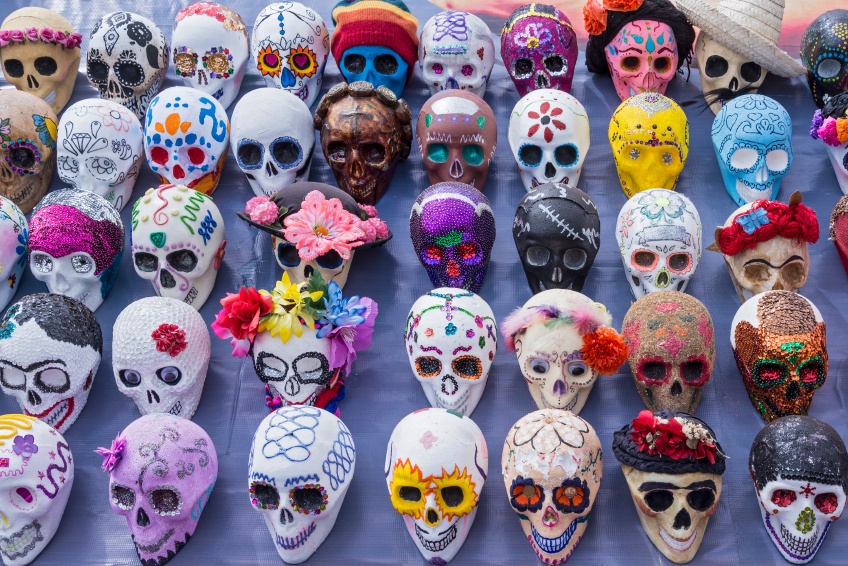Dias de los Muertos, or Day of the Dead, is a celebration of life by honoring those that have already passed away. Far from a somber occasion, it’s one of the most vibrant and colorful holidays across Latin America and parts of the U.S.
The Day of the Dead is a time to reflect, which got us thinking about what the holiday says about our living relationships and how holidays bring people together.
People From Different Parts of the World Can Be Strikingly Similar
Dias de los Muertos is a Mexican-born holiday that has roots in Catholicism’s All Saints Day and All Souls Day, which also happens on November 1st and 2nd. Its proximity to Halloween is by pure chance, but it does highlight how similar cultures can be even when they are worlds apart.
Halloween was conceived in Northern Europe, and it too is connected to death and the afterlife. The two corresponding holidays are a reminder of how similar we all are no matter where we live. The essence of Dias de los Muertos is acknowledging that death as a part of the human experience. It’s ONE THING that we can all relate to and respect.
Joy is More Powerful Than Sorrow
It is said that loved ones who have passed away will become offended if family members and friends grieve them on Dias de los Muertos. Instead, people should remember all the joy and happiness that they felt with the person. The living will often spend the holiday doing things that their loved one use to enjoy, prepare their favorite meals and listen to upbeat music.
This focus on joy rather than sorrow speaks to how powerful positivity can be. The dead impart their wisdom on the living by insisting that they remember the happy moments rather than dwell on the loss. It’s a lesson that translates to all parts of our lives and work. Internalize and learn from setbacks you may experience, but don’t let them hold you back from moving forward.
Candy and Holidays Are Interconnected
If you thought Halloween was the ultimate celebration of the sweet tooth you may be surprised to find that it takes a backseat to Dias de los Muertos. From sugar skulls to candy coffin displays to trick-or-treating, sweets are a significant part of the holiday’s traditions. This highlights one important point – candy is intrinsically connected to holidays.
There was once a time when sugar was a luxury, not a regular everyday food ingredient. For many people indulging in the sweet stuff was reserved for special occasions. It’s no surprise that nearly every holiday in every part of the world includes some element of sweet treats.
Importance of Contributing to the Community . . . Even After Death
One of the underlying aspects of Dias de los Muertos is the connection between people and their community. We’ve discussed before how important community involvement is for businesses, employees and individuals around the world today. In Mexico where Dias de los Muertos originated, being a contributing member of society is thought to be a natural part of the human life cycle.
As part of the celebration stories are told about how the dead affected the community at large and the impact that their lives had on others. During the holiday the dead continue to contribute to their community by bringing people together to celebrate life. Many people also believe that their spirits are awakened to join in on the festivities.
Businesses Have to Respect the Cultural Importance of Holidays
Last year there was a little bit of an uproar on the Internet over the city of Coachella appropriating the holiday with Dias de los Muertos USA. The big problem was that the event had a feeling of being less than authentic and more like a business deal that capitalized on a culturally meaningful event. The Walt Disney Company also found itself in hot water in 2013 when word got out that Disney was trying to copyright “Dias de los Muertos”.
While many businesses profit from holidays in some fashion, it’s never good business to deflect from the cultural significance or try to usurp a holiday for your own gain.
How did you celebrate Dias de los Muertos this year? Share your favorite Dias de los Muertos memories with us on Facebook!

